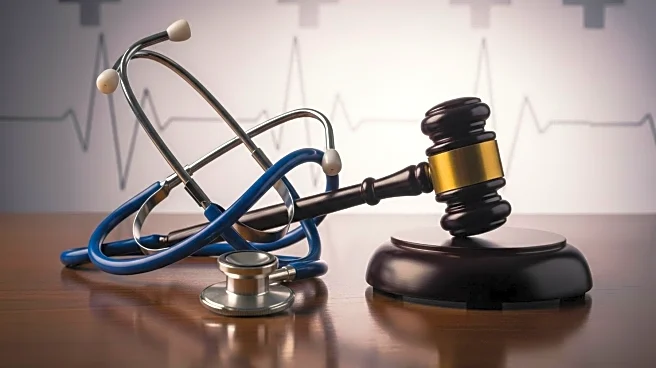What is the story about?
What's Happening?
Hillary Clinton has publicly criticized Robert F. Kennedy Jr. and the Trump administration for promoting what she describes as 'crackpot ideas' that could negatively impact public health. During a press conference, President Trump and the Secretary of Health and Human Services made unverified claims regarding Tylenol, childhood vaccines, and autism. Clinton expressed concern that these statements could lead to public confusion and potentially cost lives. She emphasized the danger of anti-science rhetoric and its potential to reverse progress in public health.
Why It's Important?
The criticism from Hillary Clinton highlights the ongoing debate over public health policies and the influence of political figures on scientific discourse. The spread of misinformation regarding vaccines and health treatments can have serious consequences, including decreased vaccination rates and increased public health risks. Clinton's remarks underscore the importance of evidence-based policy-making and the potential dangers of disregarding scientific consensus. This situation could affect public trust in health institutions and influence future health policy decisions.
What's Next?
The controversy may prompt further discussions among policymakers and health experts about the role of government officials in disseminating health information. There could be increased scrutiny on the Trump administration's health policies and potential calls for corrective measures to address misinformation. Stakeholders, including health organizations and advocacy groups, may push for clearer communication strategies to ensure public understanding of health issues.
Beyond the Headlines
The situation raises ethical questions about the responsibility of public figures in communicating health information. It also highlights the cultural divide between scientific communities and political rhetoric, which can influence public perception and behavior. Long-term implications may include shifts in public trust towards health authorities and changes in how health information is regulated and disseminated.

















